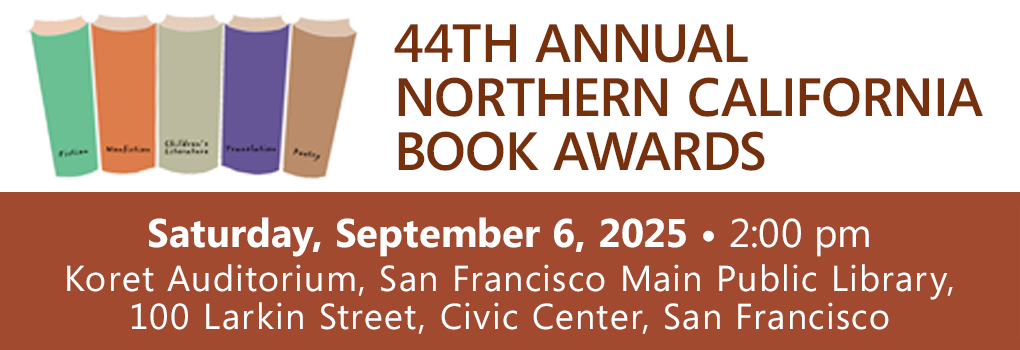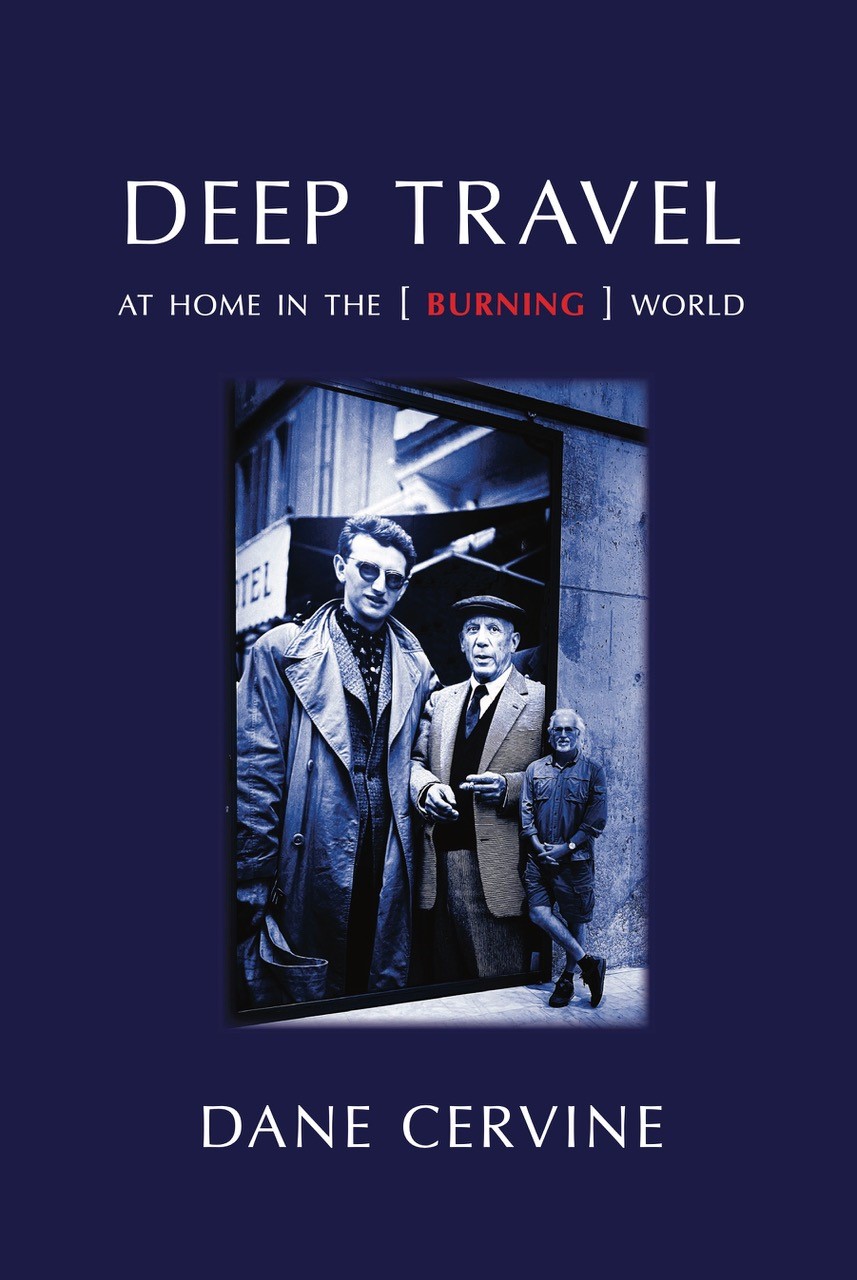
Luminous Facts
by Dan Alter
Liner Notes, by Andy Mister, Station Hill Press, Barrytown, New York, 2013, 68 pages, $13.95 paperback, www.stationhill.org.
I'M CAPTIVATED BY HOW Andy Mister's slim first book encompasses contradictions. It is beguilingly readable, despite many opaque passages; it burrows into despair and self-destruction, and emerges redemptive. Though unquestionably a book of poetry, Mister's volume stakes itself at an angle to the medium. Almost entirely prose, it moves fluidly between lyric, autobiographic, and biographic deployments of language. The "liner notes," vignettes about rock musicians and other artists' drug addictions and suicides, create a netting in which Mister strings narratives of his past and lyric meditations set in cities of his present.
In an essay on the "composite" poem, Tony Hoagland writes about the use of information, or facts, in the poetry of modernity: "to accommodate a reality in which more data, more speed, and less fixity have been evident.… The composite poem approaches the real through an aesthetic process of sampling, counterpoint, and dialectic." Liner Notes is a poem in this tradition, where facts and factuality become a defining mode of existence. This mode, which might be called lyrical documentary, infuses its tone, form, and system of metaphor.
The book is written in prose, the medium of choice for writing meant to convey information; the basic unit of his prose is the short, direct sentence, e.g. "The buildings are wrapped in plastic." (p. 38) The media figures enter abruptly, without a gloss, assuming we have Google in hand. Similarly, quotes are given in the text with no attribution. As its instances pile up, the "fact" becomes dislocated in a way that opens up its poetic possibilities.
In narrative sections, moments in a sequence take on this dislocated quality as well: the detail that ends a story carries no more weight than any other. For example, Mister ends the book's longest narrative, which recounts seeing a dead body while on LSD, with going to find his mother, hoping for comfort. But when he finds her working in her garden, he writes: "A few weeks earlier, I lost my virginity to my roommate's girlfriend. I'd just turned 18." (p. 32) He refuses to conclude his story, he just adds something else, the next thing. Life isn't causal in this poem; it doesn't necessarily develop; it proceeds in a mundane accretion of detail.
Subjective experience in many passages also participates in the factual system. "Once when I was 13, riding home on the school bus, I drowned. I had to convince myself I was breathing." (p. 7) The feeling becomes fact. Metaphor is another aspect of reality.
In another deployment of facticity, the language sometimes goes to a technical register, as in a scientific text, e.g. "Scenes and conversations on the movie screen foreshorten reality. They are never coterminous with such moments in real life." (p. 20) The poem claims the certainty of the fact and the "factual" text, while undermining it: these two sentences make an authoritative sound, but remain opaque. He lets his text move in opposite directions at once, as he sometimes states openly: "I never knew you could lie in a poem. Then I realized you couldn't." (p. 42) As the poem makes a space for these contradictions, it undermines the very factuality it inhabits. This is a world where everything is fact, and none can be trusted.
The dislocated quality described above, the gappiness between units at the level of sentence and/or attention focus, shares another characteristic of the "composite poem": collage. The pieces of Mister's collage vary in length: some biographic and autobiographic materials are one sentence long, while others develop across multiple blocks, interspersed with lyric passages. In the center of the book is the aforementioned story of young Mister seeing a dead body while tripping on LSD. This takes up nine-blocks spread over as many pages, interlocking with meditations on death, hallucination, the movie he and his friend were watching, and on. In the book's final pages, Mister's father's attempted suicide is reported by exactly the same methods, so that it blends into the series of such events that have accumulated gravity throughout the book. Private experience merges with public.
The pacing of the collage is also fluid. On the opposite end from the narrative segments that unfold over one or many blocks, some blocks shift focus, location in time or space etc. between every sentence or two. I find the speed and fluidity exhilarating, as in this passage:
I can't listen to music that often. The record lives on as an entity unto itself. Gray cloud banks with lights of Oakland shining beneath. The train's heart murmur. The night was all around us. Schoenberg sent everyone to the blackboard. Here's your chance to make me feel awkward. The light kissed her skinny throat. Waves lapping at the foot of our bed. (p. 45)
Here tense, pronouns, tone, location and more pivot from sentence to sentence. In the matrix of language created by the rest of the book, however, all of these fragments resonate and "make sense" in some way (at least, within a world where meaning has been fragmented and reduced to disconnected detail).
Conversely, the text teaches us to read the connections between more apparently continuous sentences as loose. Thus in the following passage, while all the sentences could take place in one location, in the context of the book they read as disjointed. "I miss the ice hanging from gutters in the alley behind my apartment. Wind lifted snow into the light from a streetlamp. I just stood there. Everything was crisp as a photograph. A year later, I was gone." (p. 56)
Along with collage and facticity, Liner Notes employs a multilevel reflexivity, transparency about its writing as a process. The fact of writing bleeds through into reality and vice versa. "Everyone was smiling, which scared me. I kept crossing out words as I went along. The street was lined with blank spaces. I wanted to disappear into them." (p. 4) Mister also makes frequent direct statements about his methods and intentions forming a kind of refrain of mini ars poeticas, e.g., "Each statement is a fact. The memoirist is a liar." (p. 51) He mentions or quotes poems he tried to write, notes time's passage in the text's writing, and recounts a story from a writing workshop.
This awareness of the writing self-reflecting into the text participates in the overall effort of the book, a grappling with isolation and despair. Moments of reflexivity gesture toward the futility of communication in the world of information overload: "No-one has a story anymore, now that everything's being recorded." (p. 46) "You could only hope that describing the world would somehow change it." (p. 19)
The flatness of much of the book's style, and its factiness, too, work to convey a sense of futility and defeat. This occurs in time, as in: "The minutes lose their color, until we can see through them into a future that is not ours. Soon we will carry it around as a memento, 'the past.'" (p. 13) The futility also extends in space: "I'm tired of nothing happening, but it keeps happening all around us." (p. 31)
But Mister doesn't just go into the despair to portray it. Delicately, remaining committed to its stark honesty, Liner Notes pushes at the limits of the despair and isolation, looking for windows where meaning can still occur. Whenever the writing situates in a present tense, it works at the possibility of connection. In multiple cityscapes, on public transit, in bars, at work, opposite poles of alienation and bond coexist: "Everyone was rushing to catch the last BART home. I felt like I was part of something.…I made an effort not to sit too close to anyone on the train." (p. 42)
Mister locates possibility particularly in music, and intimacy: "There are moments when I listen to John Fahey records and I feel closer to those sounds than all the times someone I love has said my name." (p. 44) Closeness with a "her" recurs as source of solace. Mister proposes that "…hope is only possible at the edge of the body." (p, 10)
Here's the penultimate block:
"My girlfriend walks to work over the Williamsburg Bridge during the transit strike. I lie in bed and feel each point where our bodies touched while we slept. The highest paid MTA employees make about $53,000 a year. There are plenty of ways to know you're not dying. Whatever light is left in the sky when she gets out of work." (p. 59)
In the world of suicide, drugs, defeat, and mundane overwhelm which Liner Notes encompasses and is made of, and which enters into even a moment like this one (via the fact-interjection of the salary), such a reprieve is, literally, luminous. ![]()
Dan Alter lives and writes in northern California's East Bay. He previously reviewed Joshua Beckman's The Inside of an Apple for Poetry Flash.
— posted February 2018








































 So Far So Good: Final Poems, 2014-2018
So Far So Good: Final Poems, 2014-2018  Abandoned Poems
Abandoned Poems 















 Mississippi
Mississippi 


















































































